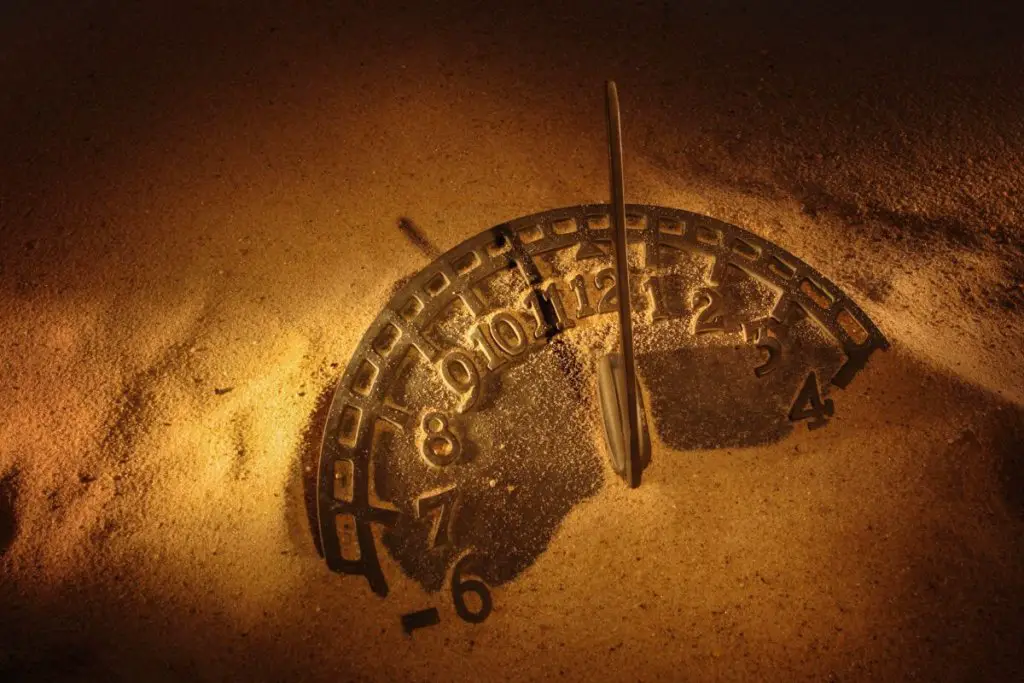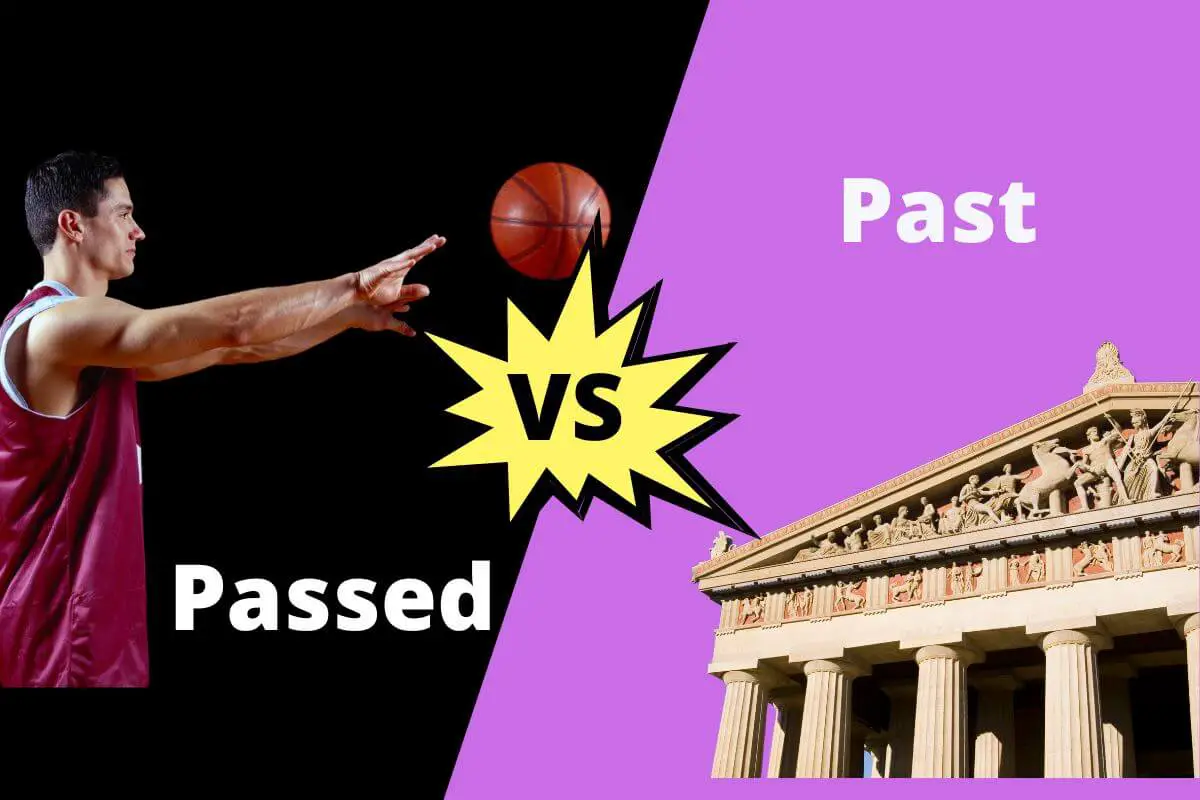The main difference between passed and past is that past functions as a noun, adverb, preposition, and adjective, while passed is the past tense form of the verb to pass.
The English language has a lot of confusing homophones, which are words that share similar pronunciations but have different meanings and functions with a sentence, like the words to and too. Past and passed are excellent examples of homophones, but how do you decide which is the right one to use in a sentence?
| Passed | Vs | Past |
| Past tense of the verb to pass, which means to move on or proceed. | Meaning | Has many functions, and most of its meanings are associated with time. |
| Verb | Part Of Speech | Noun, adverb, preposition, and adjective. |
| Yes | Can It Be Used As A Verb? | No |
Table of Contents
What Does Passed Mean?
The word passed is the past form of the verb pass. The verb changes by adding -ed at the end, referring to something that has already happened.
Below is how the verb pass is used in different tenses.
- I pass (present tense)
- I passed, or I have passed (past tense)
- I will pass (future tense)
Passed has a number of different meanings depending on the context of a sentence. It is a transitive verb, which means it can take a direct object. Some definitions of passed are:
- To move or proceed
- To die
- To throw or kick
- To go away
- To cede control
- To go without being noticed or challenged
- To be confirmed as a law or rule
- To be transferred
- To decline to bid or speak
- To decline an offer
- To be confirmed as a law or rule
- To go from one state of being to another.
Examples Of Passed
Here are a few examples of the term passed.
- Time passed slowly while we were waiting to see the doctor.
- The ships passed each other in the night.
- Fear and panic passed through the crowd as soon as an explosion occurred.
- The rumor quickly passed from student to student.
- They passed the time by playing video games.
- He passed the baton to his teammate.

What Does Past Mean?
Unlike passed, the word past is a noun. It refers to an earlier time or time that no longer exists. It can also be used as a preposition, adjective, and adverb, each with specific meanings.
- Adverb: As an adverb, the word past describes an adjective or a verb.
- Adjective: Past can also be an adjective that describes a noun.
- Noun: As a noun, past means an earlier period.
- Preposition: As a preposition, past is often used to tell time.
Examples of Past
Here are a few examples of the term past.
- Adam had to drive past quickly to check if his friend Kane was home.
- Three cute pups hopped past us suddenly.
- He was living in the past and couldn’t move on.
- We enjoyed ourselves a lot while reliving our memories from the past.
- His house is a mile past the office.
- She looked past me and saw her friend approaching us.
Tips For Using Passed And Past
When using passed or past writing, consider how the word is functioning in the sentence. Is it a verb, noun, or another part of speech? The answer will help determine the correct word to use and help keep your writing clear and professional.
Writing Tips For Using Passed
- Passed is also related to some physical movement.
For example, the hunter passed the deer.
This example talks about the hunter physically moving from one location to another, i.e., passing the deer. Most importantly, passed functions as the verb within the sentence and indicates and action that has already been completed.
Passed doesn’t always have to do with literal movement. However, it refers to changes from one state or condition to another.
Writing Tips For Using Past
The term past has many functions, unlike passed. However, while past has a variety of uses, it should never be used as a verb.
- As an adjective, past is used to describe how something is.
- When used as a noun, past refers to a time that is not the present or the future.
- As a preposition, past refers to a word demonstrating the physical and temporal relationship between two things.
- Past as an adverb modifies the verb and describes where the action took place. For example, “I ran past your house.”
Passed vs Past – Some Major Differences
Passed and past seem similar but have significant differences. Here is a brief difference between the two.
Meaning
Passed is the past tense form of pass, which means to proceed or move on. On the other hand, past has many functions, and most of its meanings are associated with time.
Part of Speech
Passed is the past tense form of the verb pass, while past can be a noun, adverb, preposition, and adjective.
Can it Be Used as a Verb?
Passed is a verb, so it doesn’t modify other verbs. In contrast, past should never be used as a verb.

While passed and past sound the same, their usage differs greatly. The most important thing to remember is that passed is a past tense verb, while past function as a noun, adverb, adjective, or preposition, but never a verb.

